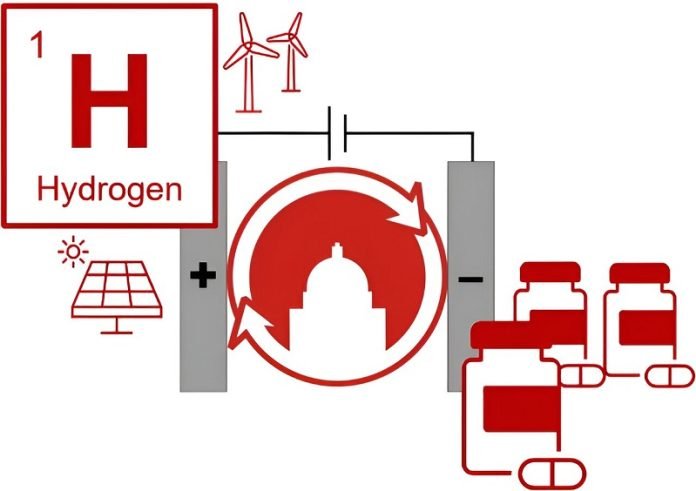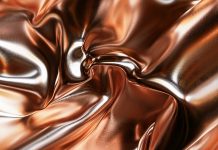
Making chemicals for medicines and other products uses a lot of energy and can be bad for the environment.
Researchers from the University of Wisconsin–Madison think they’ve found a cleaner, greener way to do this.
They’re using technology from hydrogen fuel cells, which already help power some cars and electronic gadgets, to make ingredients for medicines.
Usually, to make these chemicals, you need a source of tiny particles called electrons. In the past, people used a metal called zinc to get these electrons.
But zinc is tricky to handle and creates a lot of waste that harms the Earth. To find a better way, the researchers teamed up with scientists from Merck & Co., a big pharmaceutical company, to think of new methods.
“We needed a cleaner way to get these electrons,” says Shannon Stahl, a professor at UW–Madison who led much of the research. “And then we realized, why not use fuel cell technology to get what we need?”
So what is a fuel cell? It’s something that takes in hydrogen gas and uses it to make electricity. The great thing about hydrogen is that it’s clean.
You can make it using renewable energy like solar or wind power, and it doesn’t create a lot of waste. Hydrogen fuel cells are usually used to make electricity, but these scientists thought, “Why not use them to make chemicals instead?”
Mathew Johnson, who led the study, says this is part of a bigger plan to use hydrogen for more than just fuel cells.
“We can use hydrogen and electricity together to make new medicines,” he says. “This is part of a broader effort to build an entire system that uses hydrogen in different ways, not just for energy.”
To test their idea, they used a special chemical called a quinone to take electrons from hydrogen. What makes this even better is that they don’t need water for this process to work. Usually, fuel cells need water, but water can mess things up when you’re trying to make medicine.
After getting electrons from hydrogen, they use electricity to give those electrons extra “oomph,” or energy. This supercharged process can then be used to make various useful chemicals, even ingredients for medicine.
The researchers published their findings in a scientific journal, showing how they made a large batch of a medicine ingredient. Now, they are working on making this process even better so it can be used on a large scale, like in factories. And the potential doesn’t stop there.
“This isn’t just for making medicines,” says Johnson. “This method can be used for making all sorts of chemicals. It’s a very flexible technology.”
So in the future, we might see this amazing mix of hydrogen and electricity being used to make not only cleaner medicines but also other products we need, all while being kinder to our planet.
The study was published in the journal Nature.
Follow us on Twitter for more articles about this topic.



